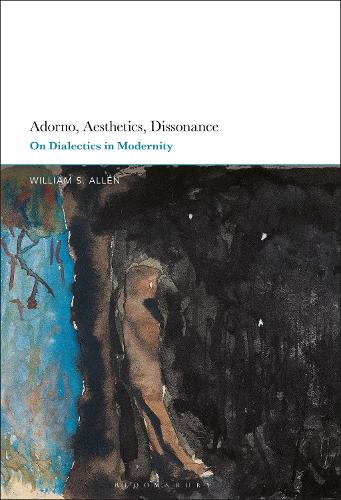
Adorno, Aesthetics, Dissonance: On Dialectics in Modernity
(Paperback)
Available Formats
Publishing Details
Adorno, Aesthetics, Dissonance: On Dialectics in Modernity
By (Author) Dr William S. Allen
Bloomsbury Publishing PLC
Bloomsbury Academic USA
30th May 2024
United States
Classifications
Professional and Scholarly
Non Fiction
193
Physical Properties
Paperback
272
Width 142mm, Height 224mm, Spine 13mm
400g
Description
Adornos aesthetics are one of the most important philosophical analyses of the 20th century, but their development remains unclear. Adorno, Aesthetics, Dissonance is the first book to provide a detailed study of how Adornos thinking of aesthetics developed and to show the different dimensions that came together to make it uniquely powerful. Principal among these dimensions are his intense interest in music and his historical and materialist approach. In addition, by studying how Adornos aesthetics arose through interactions with different thinkers, particularly Kracauer, Horkheimer, and Schoenberg, it becomes clear that his thought changes in its relation to dialectics. As a result, Adornos thinking comes to broaden the understanding of aesthetics to include the sphere of sensuality, and in doing so transforms both aesthetics and dialectics through a notion of dissonance, which in turn has substantial implications for the relation of his thinking to praxis.
Reviews
Sustained by an uncommon critical poise and a circumspect conceptual sobriety that allows for both nuance and vigor, Allen excavates the ways in which Adornos innovative mobilizations of the post-Hegelian dialectic cannot be separated from his rethinking of aesthetics. Allens new book constitutes a thoughtful contribution to our ongoing reassessment of the specifically aesthetic dimension of Adornos philosophical project. * Gerhard Richter, Professor of German Studies and Comparative Literature, Brown University, USA and author of Thinking with Adorno: The Uncoercive Gaze *
Adorno, Aesthetics, Dissonance is certain to make a distinctive contribution to the most recent literature on Adorno. While many have traced the influences of Kant and Hegel on Adorno's aesthetics, this book definitively shows the equally deep marks made by Adorno's engagement with a host of contemporary composers and writers. Here we find an Adorno developing his thinking about art and society while embedded in the most advanced art of his time. * Tom Huhn, Chair of BFA Visual & Critical Studies and Art History, School of Visual Arts, USA, tomhuhn.com *
Author Bio
William S. Allen is an independent researcher at the University of Southampton, UK, and the author of Aesthetics of Negativity: Blanchot, Adorno, and Autonomy (2016); Without End: Sades Critique of Reason (Bloomsbury, 2018); Blanchot and the Outside of Literature (Bloomsbury, 2019); Noir and Blanchot: Deteriorations of the Event (Bloomsbury, 2020); and, Illegibility: Blanchot and Hegel (Bloomsbury, 2021).
